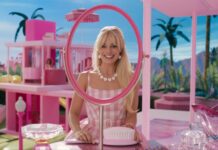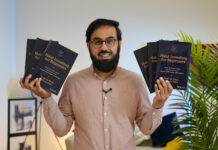After returning from a much needed vacation, 5Pillarz deputy editor Dilly Hussain concludes that Malaysians are one of the most hospitable people he’s ever met.
Situated in Southeast Asia, Malaysia shares a maritime border with Thailand, Singapore, Vietnam and Indonesia.
With a diverse religious and ethnic population of 30 million, 60% are Sunni Muslim, 20% Buddhists (Chinese), 10% Christian (Chinese) and 7% Hindus (Tamils).
Whilst Malay is the official language of the country, English is the active second language with most urban Malaysians speaking “Manglish.”
Kuala Lumpur
I spent seven days in Kuala Lumpur (KL) and three days in the exotic island of Langkawi in the northwest of Malaysia.
But things didn’t start too well – upon arriving at KL, I touted an unlicensed taxi which resulted in a police chase on the motorway after which we were escorted back to the airport to get a licensed taxi cheaper than the one I illegally flagged!
Subscribe to our newsletter and stay updated on the latest news and updates from around the Muslim world!
For a good 15 minutes, the police were adamant that I was a foreign Malay (something I got used to as time passed) due to my semi-oriental eyes, my caramel complexion and the signature “goatee” on my chin which most Malaysian men have.
Anyhow, following this inauspicious start, the next morning I woke up at the Sheraton hotel located in the Golden Triangle facing the Pretorius Twin Towers. I’m not usually taken back by skyscrapers, but the view was impressive.

I visited the Masjid Jamek area better know as “Little India” via the metro line (very similar to the London underground).
Masjid Jamek was one of the first mosques built in KL (1909) and I managed to make it in time for Dhuhr jammah, which allowed me to speak to some of the worshippers after salat.
There was a feeling of peace and serenity at Masjid Jamek with its openness and cool marbled floor. A few minutes walk from Masjid Jamek was Masjid India, opposite the famous Indian bazaar.
Demographically, the Masjid Jamek area consisted mainly of Indian Muslims, and during my stroll through the bazaar, I managed to speak to some of the shopkeepers about life in Malaysia. Most the people I spoke to were relatively content with the state of their country – a stable economy, employment opportunities and a promising education system.
Obviously it is innate for humans to always want more, but they seemed genuinely happy. Their kindness and sincerity went beyond softening me up to buy something from their stall.
But their happiness and contentment went beyond personal stability and it wasn’t due to ignorance of what’s happening outside of Malaysia. Malaysian Muslims were fully aware and concerned about the state of the Muslim world, be it Syria, Egypt or Palestine. And it wasn’t just Muslims that were kind and content – the Hindus and Chinese were as hospitable as the Muslims.
60% of Malaysia’s migrant population are Indonesian whilst Bangladeshis were the second largest (25%), and those I spoke to did not complain about ill-treatment or racism from Malaysians.

The current government is led by Prime Minister Najib Razak of the 13-party Barisan National Front in a coalition with the Malaysian Indian Congress (MIC) and Malaysian Chinese Association (MCA). The main opposition is the Pan-Malaysian Islamic Party (PAS) who want to make Malaysia an “Islamic state” based on the Saudi model.
Muslims have to follow the decisions of the Shariah courts in matters concerning their religion. The Qadis (judges) follow the Shafi’i madhab which is the dominant school of thought in Malaysia.
But the jurisdiction of the Shariah courts is limited to matters such as marriage, inheritance, divorce, apostasy, religious conversion, vice and custody among others. Despite being the supreme courts of the land, the Civil Courts do not hear matters related to Islamic practices
Happy Muslims
From my discussions with taxi drivers, hotel staff, market workers, stall holders, restaurant waiters, migrant workers, I conclude that Muslims of Malaysia are the real “happy Muslims” – without having to dance to Pharell Williams’ Happy song that is!
There are many things British Muslims (and Muslims in the Arab world and Subcontinent) can learn from our brethren in Malaysia. Here are a few traits that were apparent to me:
Orthodoxy – There were no blatant forms of bida’h (newly innovated practices) in the masajid unlike the Subcontinent. There were no shrines of saints, no chanting, no emblems of good or bad omens. The Malay have also lived amongst Buddhists and Hindus and could have easily adopted pre-Islamic cultural/religious practices due to social imitation, but they haven’t.

Multiculturalism – Whilst 60% of the population is Muslim, the remaining 40% are non-Muslim and that’s a huge religious minority population, but the Malays have struck a fine balance of societal harmony. They are able to live with other religious minorities without necessarily being aggressively nationalistic to bond with them or too hard-line to oppress them.
Identity – Malays are proud Muslims and this is evident in how dearly they hold onto Islam. They have no issues about their country being “Islamised” (as long as the Shariah isn’t implemented on minorities on civil matters); they are concerned for the wider Ummah; they have a passion to learn the dheen; and most of the Muslims I met were warm to the idea of an pan-Islamic state – as long as it protected religious minorities and accepted juristic differences amongst Muslims.
I have also never seen so many women donning the hijab, so many men with the “one fist” beard and so many smiles.
Optimism – If there’s one thing that demoralises Muslims (or any group of people) it is pessimism – the idea that as an Ummah we are unable to better ourselves and change our situation. Malaysians on the other hand practically say Alhamdulillah and insh’Allah with conviction about everything. Some may argue that Malaysians haven’t experienced the blood-stained history the Subcontinent and the Middle East have had with the West from the Crusades to the era of European colonialism right up to the War on Terror.
Nevertheless, Malaysian Muslims seem to be optimistic about their personal lives, financial provisions, the betterment of society and most importantly the state of the Ummah.
Balance – Malaysian Muslims have not warmed to the idea of liberalism, secularism and a modernist interpretation of Islam. They are still very much conservative and traditional in their understanding of Islam yet a good example of a multi-cultural and tolerant society.

Do not think for a moment that I am suggesting that Malaysia is the place to make hijra (migration); far from it. Like the rest of the Muslim world, it is heavily influenced by Western culture and its economy is based on the capitalist model.
However, unlike the Arab world and the Subcontinent, Malaysians are not bogged down with infighting, sectarianism, tribalism, racism towards non-Malays and most importantly, they treat their minorities and migrant workers with respect and care, as was evident with the Indonesians and Bangladeshis I met.
Travel tips
Would I recommend Malaysia for a holiday? Of course I would! It should be a definite “must go” location on everyone’s list of holiday destinations.
Places to visit whilst in KL:
– Petronus Twin Towers
– KL Tower (Revolving Tower)
– China town
– Little India
– Arab Street (Bukit Bintang area)
– Batu Caves
– National Mosque
– Blue Mosque (Alam Shah)
– Genting Highlands
– Putrajaya (15 miles south of KL, the main governmental city)
– Royal Palace
– Independent Square

You could see the whole of Langkawi in a day if you hire a car or motorbike. Lots of water sports, markets and sea food restaurants.
I’m not a big fan of sea food, I don’t eat fish, don’t trust street food, so I stuck to McDonalds, Burger King and KFC because I’m deprived of it here in the UK. However, everyone says how Malaysian food is lovely – I just have an intolerant and distrustful pallet!
I travelled with Qatar Airlines and booked my tickets with Net Flights which cost around £550 including travel insurance. I stayed at the Sheraton in KL and the beautiful Berjaya Hotel in Langkawi, prices range depending on preferred suites. £1 is around 5 MYR.
@dillyhussain88


















